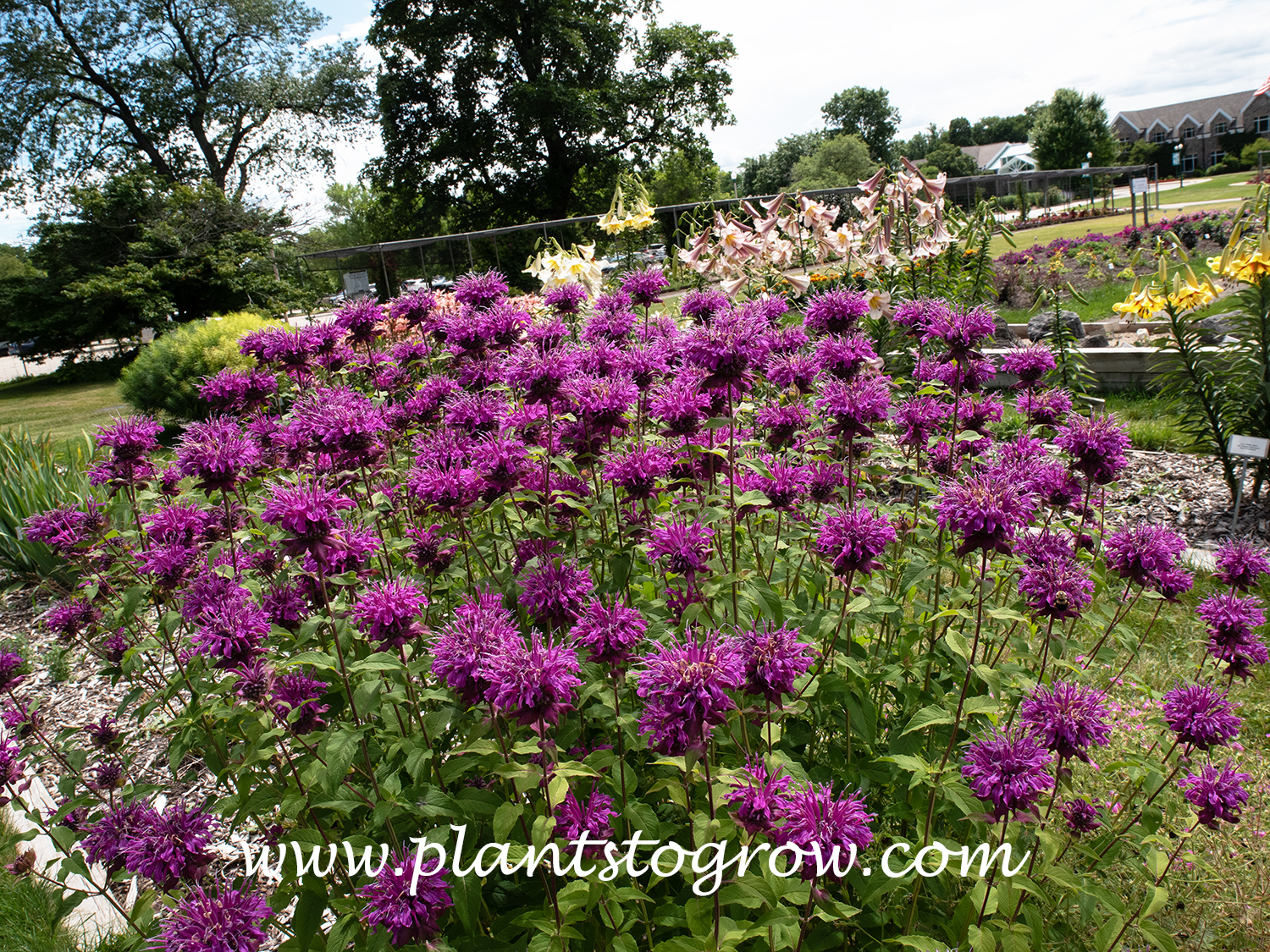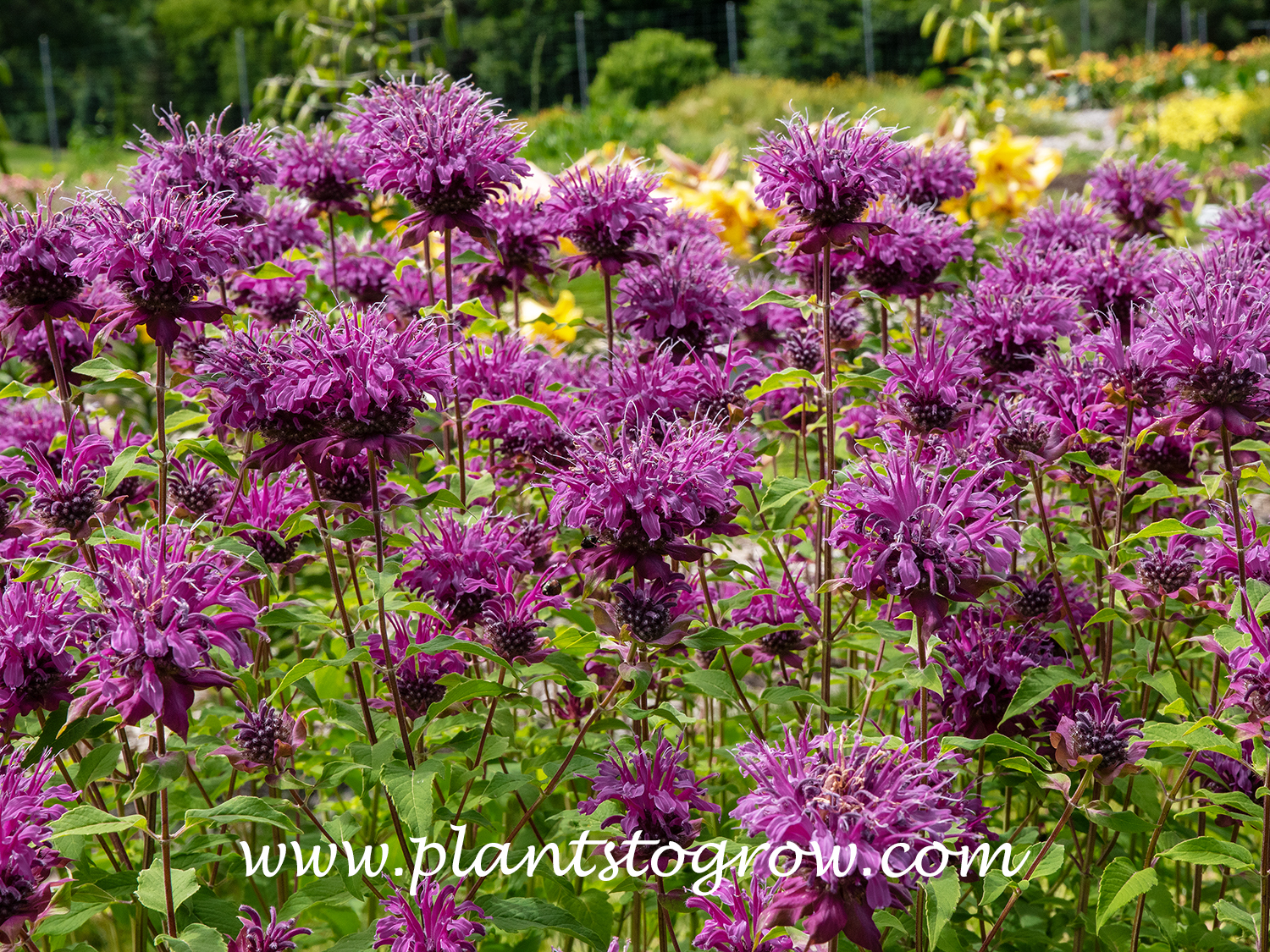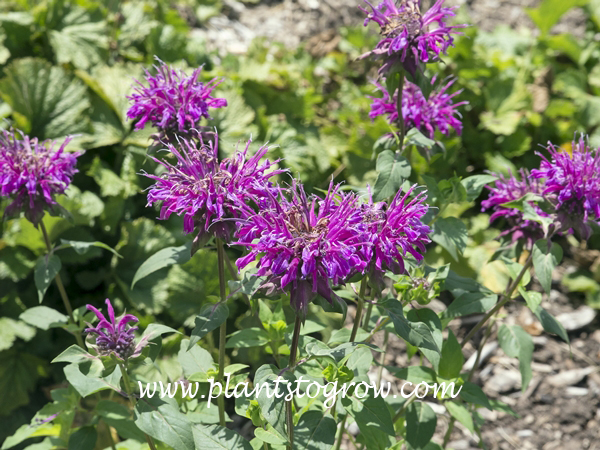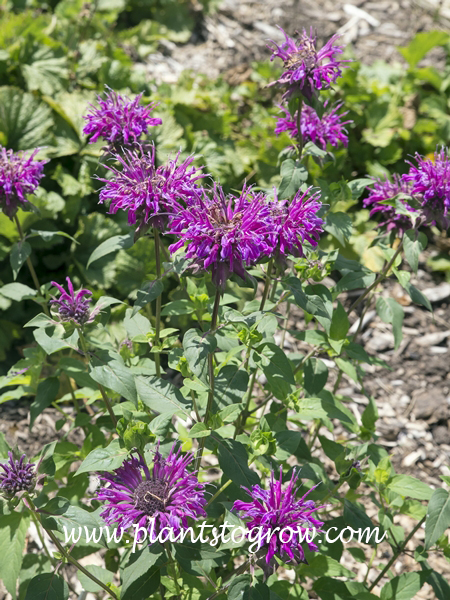| Description | Its Magic Beebalm (Monarda) is a hardy spreading perennial with red purple flowers and good resistance to powdery mildew. |
|---|---|
| Pronunciation | (mo-NAR-da) |
| Plant Type | Perennials Hardy, Site author's observations |
| Hardiness Zone | 5 |
| Sunlight | full |
| Moisture | Average, in moist sites, they will expand rapidly, becoming aggressive and invasive. |
| Soil & Site | average |
| Flowers | Tubular violet-purple flowers (florets) are whorled around the center dome. The colors appear in mid-July and last through August. Flowers attract bees, Hummingbirds, and other pollinators. |
| Leaves | Ovate to ovate-lanceolate, medium to deep green leaves (3-6” long) with serrate margins. Leaves emit a minty fragrance when bruised or crushed. The leaves are used to make tea. This cultivar has resistance to powdery mildew. |
| Stems | The upright stems are four-angled. Spreads by aggressive rhizomes. |
| Roots | fibrous |
| Dimensions | over 3 feet tall |
| Maintenance | After blooming cut back to the ground. Cutting back eliminates the bare knee stems and the mildew laden leaves. Monarda dies out in the center and needs to be divided every 2-3 years. Dig healthy clumps and replant or dig out center and fill with compost. The plants will rapidly regrow. Should be placed behind a plant that will cover up the space left when Monarda is cut back. |
| Propagation | Monarda can be grown from seed, but cultivars will not produce true-to-type offspring from seed. Monarda can be easily reproduced by division and also through softwood cuttings. |
| Native Site | Genus is native to North America. |
| Cultivar Origin | Brent Horvath of Intrinsic Perennials, Illinois USA |
| Misc Facts | Called Oswego Tea because it was discovered by John Betram near Oswego, New York. He used the leaves to make tea. The genus was named after Nicolas Monardes a 16th century botanist |
| Author's Notes | Refer to Monarda ABCs for additional culture information on Monards. |
| Notes & Reference | 04-Herbaceous Perennial Plants (Allan Armitage), #40-Herbaceous Ornamental Plant (Steven Stills), #274-Site Authors' observations and growing experiences of different Monardas |

Cart




